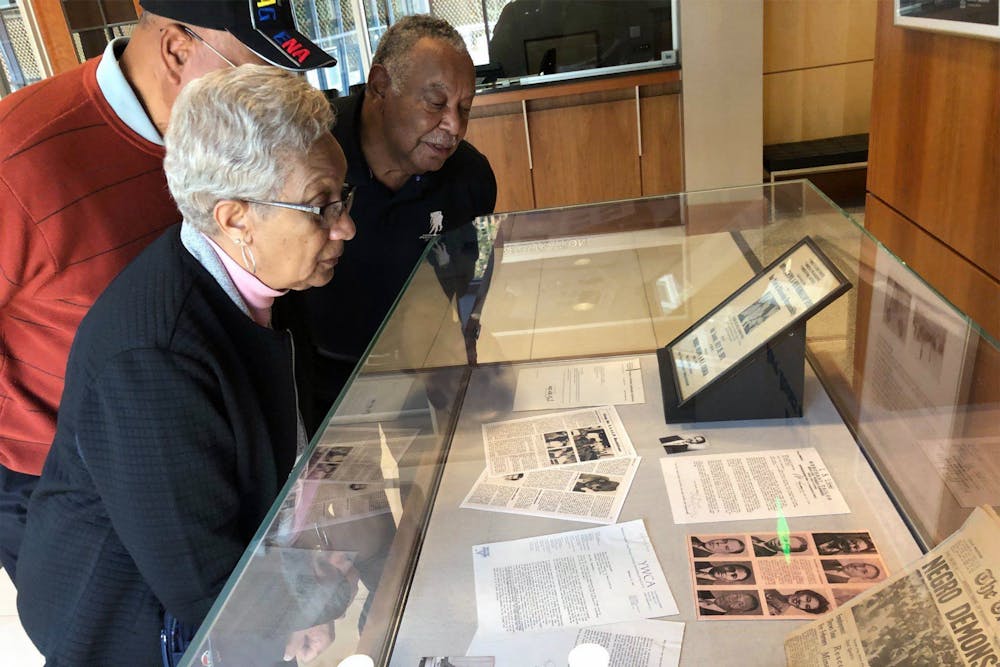The University of South Carolina helped launched a traveling exhibit to educate South Carolinians about the state's role in the civil rights movement.
The university, with the support of the South Carolina Humanities and Central Carolina Community Foundation, launched the "Justice for All: South Carolina and the American Civil Rights Movement" exhibit last month. The exhibit will educate students across South Carolina about the civil rights movement through the end of 2023.
The exhibit originally debuted in 2019. At the time, the Center for Civil Rights History and Research worked with the South Carolina Humanities and the University of South Carolina Libraries to showcase historical artifacts such as photographs, manuscripts and oral history recordings.
The original exhibit was seen by over 5,000 people, according to Bobby Donaldson, an associate history professor and director of the USC Civil Rights Center.
As a result of the success, the South Carolina Humanities will showcase a traveling exhibit with the help of grants from the Central Carolina Community Foundation and the National Park Service.
The traveling Justice for All exhibit will allow for greater outreach and awareness across South Carolina, according to Donaldson. It will focus on educating children and hosting dialogues about how history is applicable to current events and times.
Donaldson said he is confident the traveling exhibit will further bring awareness and excitement across South Carolina.
“Part of the excitement was that we knew there was a history. We knew there were contributions, but not many people knew that there were records,” said Donaldson. “Going through boxes and going through collections, we came away with several things that have literally been hidden for decades, for a generation."
The traveling Justice for All exhibit will be showcased in the Sumter County Museum until March 19. The exhibit will highlight Sumter natives James T. McCain and James Fielder.
Constance Caddell, the archivist for the Center for Civil Rights History and Research, is confident the new exhibit will bring awareness to the pivotal role South Carolina had regarding the civil rights movement.
“When you think about the civil rights movement, you always think about certain states — Alabama, Georgia, or Mississippi — but the Justice for All exhibit is highlighting the significant work and really the groundwork that South Carolina did,” Caddell, a Ph.D. candidate in USC's School of Information Science, said. “And so that’s what I think is one of the main things that we’re trying to get across with the exhibit."
Rachel Young, who has a masters in public history and is the program manager for the Center for Civil Rights History and Research, is working with each location to ensure their historical materials and local civil rights histories are highlighted as well.
Currently, the University of South Carolina campus does not have a permanent location for the current civil rights center exhibits, so many of the items are spread out around the campus.
Thomas McNally, dean of libraries, said there are plans to renovate the Booker T. Washington building, which once served as an African American high school.
“So much of it was torn down, but there’s still one large building left,” McNally said. “And I think there’s a good chance that that will become home for the center for civil rights at some point, which would be great.”
After March 2022, the exhibit will travel to other museums until the end of 2023. More information including the next stops can be found on USC's Civil Rights Center website.
Correction (Feb. 9, 2022, at 5:15 p.m.): A previous version of this article incorrectly said that the Central Carolina Community Foundation is showcasing the traveling exhibit. The Central Carolina Community Foundation provided donations for the exhibit, but is not showcasing it.

